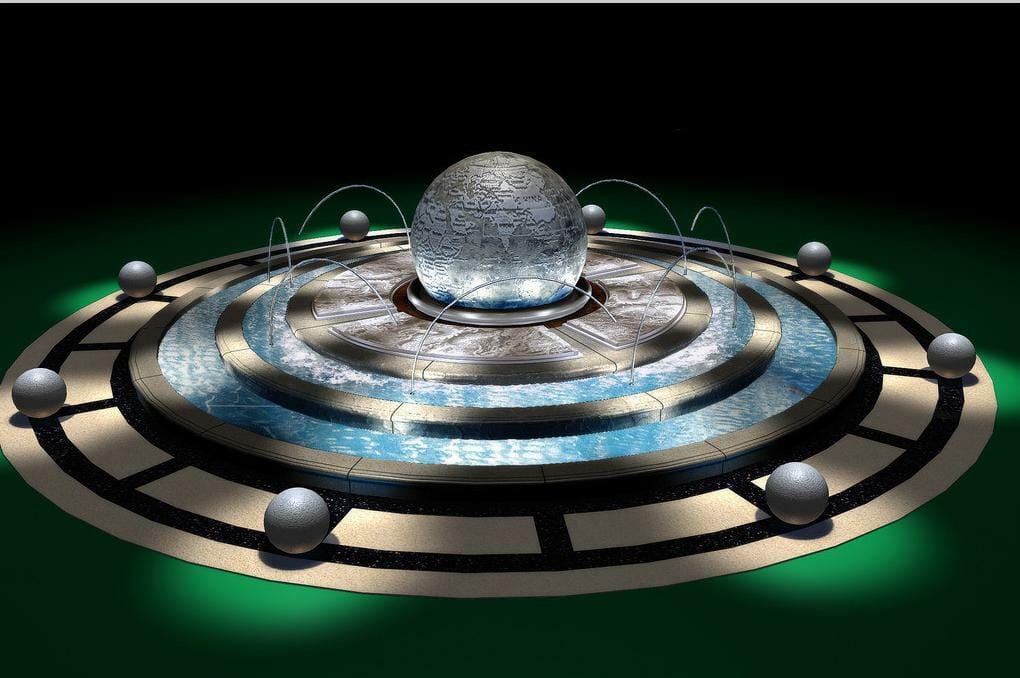- Health Is Wealth
- Posts
- Chinese Feng Shui
Chinese Feng Shui

Chinese Feng Shui
Chinese FengShui is a discipline whose aim is to develop the space so as to optimize theflow of Cosmic Energy to improve the quality of life.
Theword “space” can be taken in its broadest possible sense(environment) or in a more restricted sense (housing, house) as“school” of Feng Shui to which you want to refer.“Optimize” here means “make it effective in the highestdegree” and should not be confused with “harmonize” or“balance” because some fengshuiques situations can be very beneficialwithout being balanced or precisely because they are not balanced. The Chineseconcept of “Cosmic Energy” will later be exposed. The term“quality of life” encompasses everything that can make life moreenjoyable, be it health, well-being, success, wealth, fame, prosperity, love,friendship or moral satisfaction, etc.
FengShui, by definition, is not a speculative discipline, for example, metaphysics,but a practical discipline – one might even say utility. It is not intended topromote pure knowledge in any field, but only to make our more satisfying andfruitful life.
Bydefinition also, Feng Shui is a discipline quite profane: it has absolutely norelation to any religious belief or practice. It is exactly the same case asChinese astrology and Chinese acupuncture. Any reference to religious belief orpractice would be a drift or a sham. One can practice Feng Shui authentic oruse the services of a real master of Feng Shui without risk of being embroiledin a cult.
Applications
Chinese cosmogony once formalized, a flowering of applications were born, each of which is a separate discipline. These disciplines are the I Ching, astrology, acupuncture, herbal medicine, macrobiotics, necromancy, geomancy, etc. Most of them, including astrology and geomancy, were codified and formalized during the reign of Emperor Huang-illustrated Ti (2704-2581 BC. BC).
It must be noted that all the proper Chinese disciplines are interrelated because they all stem from a common fund, namely Chinese cosmogony. In other words, the basic principles of Chinese cosmogony govern all these disciplines.
Chinese Feng Shui and geomancy
Let’s talk about Chinese geomancy in particular. In the beginning, that is to say, there is nearly five thousand years, this well-understood discipline aimed at improving the quality of life in all respects ensuring optimal flow of Cosmic Energy in the environment.
But during the first centuries geomancers were occupied mostly well-being and prosperity of the Emperors, dignitaries of the Empire, potentates. They set, and aménagèrent agencèrent the imperial palaces, royal tombs, the stately homes. It should be noted that they attached so much importance to the realm of the dead to the living – because, for the Chinese, the dead have a decisive influence on the living.
It was not until the early second millennium BC some geomancers began to care for the common people, by confining mainly to the humble dwellings of these. They dared not call “geomancy” their art and democratized, but called it the “Feng Shui”, and they gave the name of “Feng Shui masters” instead of “geomancers.” We see that the origins of Feng Shui date back about 4,000 years.
In the forty centuries, the Chinese geomancy and Feng Shui exist side by side. There are not really well-defined border between the two; often they are taken one for the other, especially as some Feng Shui practitioners are quick to get out of the initial part of their art and care sites, landscapes, cemeteries and general public tombs. We could therefore compare, in a way, the relationship between the Chinese geomancy and Feng Shui that between haute couture and ready-to-wear.
Since its inception until today, the Feng Shui practice is continuous, smooth or upheaval, as a perfect timepiece, by enriching lessons over the ages, eventually becoming a highly refined art and useful. Not content with being an essential part of everyday life in the Chinese world, it is becoming the North America and Europe, that is to say in the most industrialized countries in the world.
Chinese Feng Shui Definition
History of Chinese Feng Shui
The nature of Chinese FengShui